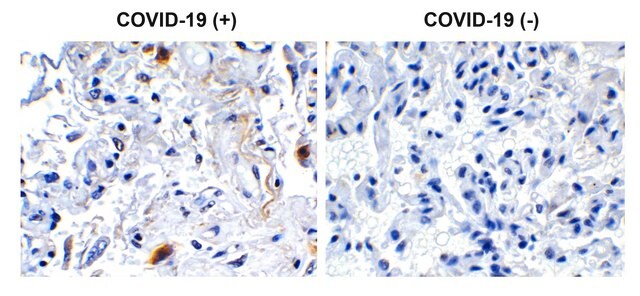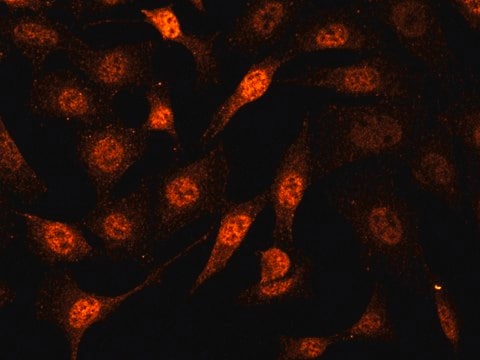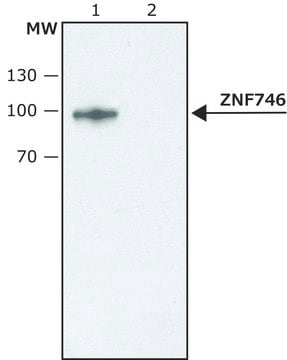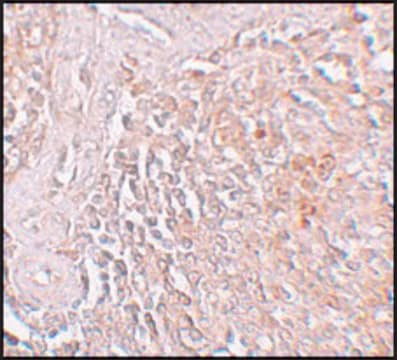SAB4200180
Anti-Cullin 3 antibody ,Mouse monoclonal
clone CUL3-9, purified from hybridoma cell culture
Synonyme(s) :
Anti-CUL3
About This Item
Produits recommandés
Source biologique
mouse
Conjugué
unconjugated
Forme d'anticorps
purified from hybridoma cell culture
Type de produit anticorps
primary antibodies
Clone
CUL3-9, monoclonal
Forme
buffered aqueous solution
Poids mol.
antigen 80 kDa
Espèces réactives
rat, human, mouse
Concentration
~1.0 mg/mL
Technique(s)
immunoprecipitation (IP): suitable
western blot: 0.5-1.0 μg/mL using whole extracts of human Jurkat cells or mouse brain.
Isotype
IgG1
Numéro d'accès UniProt
Conditions d'expédition
dry ice
Température de stockage
−20°C
Modification post-traductionnelle de la cible
unmodified
Informations sur le gène
human ... CUL3(8452)
mouse ... Cul3(26554)
rat ... Cul3(301555)
Description générale
Application
Actions biochimiques/physiologiques
Forme physique
Clause de non-responsabilité
Vous ne trouvez pas le bon produit ?
Essayez notre Outil de sélection de produits.
Code de la classe de stockage
10 - Combustible liquids
Point d'éclair (°F)
Not applicable
Point d'éclair (°C)
Not applicable
Certificats d'analyse (COA)
Recherchez un Certificats d'analyse (COA) en saisissant le numéro de lot du produit. Les numéros de lot figurent sur l'étiquette du produit après les mots "Lot" ou "Batch".
Déjà en possession de ce produit ?
Retrouvez la documentation relative aux produits que vous avez récemment achetés dans la Bibliothèque de documents.
Notre équipe de scientifiques dispose d'une expérience dans tous les secteurs de la recherche, notamment en sciences de la vie, science des matériaux, synthèse chimique, chromatographie, analyse et dans de nombreux autres domaines..
Contacter notre Service technique








